- Home
- Adam Croft
In Too Deep (Knight & Culverhouse Book 5) Page 16
In Too Deep (Knight & Culverhouse Book 5) Read online
Page 16
His sat nav told him there were just two miles to go, and he could feel his heart rate increasing every time that distance dropped. 1.9 miles. 1.8. 1.7. He could feel his love for his daughter growing the closer he got. In that regard, time hadn’t changed a thing.
He hadn’t thought about what he was going to say; he didn’t even know if he was going to say anything. He might just park up and watch, see if it was her. He didn’t know what he was going to do if it was. He’d just play it by ear. Sometimes things are better left unplanned. After all, a parent knows instinctively what to do at times of stress. It’s an inbuilt, ingrained ability.
As the miles remaining turned into yards, Jack felt his knees quivering with every gear change, his leg starting to shake as he applied the brake and pulled over into a parking bay near the skate park.
He could just about see people in there, skating, but while it was floodlit, it was still impossible to see anything at this distance.
Opening the car door, he got out, the fresh air hitting him like a ton of bricks. He suddenly felt very queasy, but he managed to just about hold it in. His legs struggling to carry him, he made his way over to the line of trees that surrounded three sides of the skatepark, locking the car behind him.
The trees were fairly new, as was the skatepark, so they provided decent cover whilst still allowing him to see through. As he got closer, he began to walk more slowly, mentally discounting the skaters one by one as he saw them. Most of them were boys. Four of them were skating, one with his long hair tucked under a beanie cap, turning a kick flip on the halfpipe as Culverhouse watched him soar gracefully through the air.
And that’s when he saw her.
She couldn’t have looked any more different from the girl he remembered. Her hair was dark now, almost black, and the amount of makeup she was wearing — visible even at this distance — made her look as if she was at least eighteen. The cute little girl in pigtails was gone, replaced by a dress code Jack could only describe as something in between gothic and burlesque.
She rested her head on the shoulder of the boy next to her, a boy who looked much older than she was, and who had his arm around her, his hand resting on her knee.
Jack got closer, and before he realised it he’d entered the skatepark and was walking over towards her.
The closer he got, the more certain he was. It was her. Even with all the time that had passed, he would still have recognised her a mile off. There was no way he couldn’t have.
He was now maybe fifty feet away, and he felt sure she’d look up and see him soon.
His legs turned to jelly again, and he stopped walking, breathing deeply and trying to control his heart rate.
He called out. ‘Emily?’
She looked up, the smile dropping from her face as she saw him. She stared for a few moments, whispered something to her boyfriend, then stood up, walking over to him with purpose.
Another boy called out from the left, ‘You alright, Jet?’
She raised a hand to him, as if to tell him she had it all under control.
Jack was speaking before he’d even realised he’d opened his mouth. ‘Jet? Who’s Jet?’
When she was about twenty feet away, she slowed, as if she couldn’t bring herself to move any closer.
Culverhouse stared at her, now completely unable to speak.
‘Dad? What the fuck are you doing here?’
48
Wendy walked onto the ward alone, asking the nurse at the desk if she could see Julian Mills.
‘Yeah, I think he’s still here,’ the nurse said. Wendy didn’t doubt it. ‘I’ll just check for you.’
Wendy thanked her and sat down on one of the chairs, looking again at her watch. She knew she ought to call Xav back, or at least fire him a quick text, but by now she was almost three quarters of an hour late and whatever she said wasn’t going to do any good. She would just have to grovel again tomorrow. She convinced herself he’d understand.
Steve, Debbie and Ryan were all waiting exactly where she’d asked them to wait — or where Culverhouse had asked them to wait, anyway. After all, this was meant to be his operation, and he was meant to have met them here. Steve had received an odd call from him shortly after they’d left, telling him he wouldn’t be going over to the hospital as he had to be elsewhere. Something more important had come up, he’d said.
Still thinking about Xav, Wendy changed her mind and decided to send him a text — just a quick update to apologise profusely and to let him know she’d explain all tomorrow. Before she could, however, the familiar but charming voice of Julian Mills came echoing down the corridor.
‘Detective Sergeant Knight, you’re working late.’
‘Overtime,’ she replied. ‘Comes in handy sometimes.’
‘I bet. So what can I do for you?’
‘I was just wondering if I might be able to ask you a few questions. Can we?’ she said, gesturing to the private room beside them.
Julian Mills nodded, and they entered.
‘Firstly, do you have any idea what Tanya Henderson meant when she said “Pevensey Park”?’
His facial expression looked well-rehearsed; almost too perfect. ‘Pevensey Park?’ he repeated.
‘Yes. We were told that just before she was put back into an induced coma, she said the words “Pevensey Park” a few times over. Do you know what they mean?’
‘No, I’m afraid not. Should I?’
Wendy broke eye contact with Mills as she said, ‘I’ll get straight to the point. Where were you on the night Tanya Henderson was attacked?’ It was a far more direct approach than she’d use in any other situation, but she had her reasons.
‘Me? Well, I was here, working.’
‘What time did you sign in?’
‘About six o’clock that evening. I was rostered on until six the next morning.’
‘And did you leave the hospital at all during your shift?’
‘No, not at all. I barely leave the ward. We don’t exactly get lunch breaks in this job, you know.’
Wendy nodded, looking at him again. ‘And what do you know about the plans to close this hospital and build a housing estate on the land?’
Julian Mills smiled, before letting out a nervous laugh. ‘What is this? Are you accusing me of something?’
‘Just answer the question please, Mr Mills.’
He sighed, rubbing his chin before speaking. ‘I’m on the board for the hospital trust. Our job is to discuss the future of the hospital and decide on strategies for saving money and delivering the best possible patient care.’ It sounded like a well-rehearsed line, almost a sales pitch.
‘In which case you’ll be able to tell me all about the plans, won’t you?’ Wendy said, as politely as she could.
Mills sat down on the arm of a chair, looking up at her. It seemed like a well-rehearsed piece of body language too: get lower, make the other person feel like they’re in control. ‘What more do you want me to say? Like all hospitals, we’re struggling for funding, and there is a proposal on the table for merging primary care treatments into other local hospitals to make sure we can keep treating patients to a high standard during difficult times.’
‘Because of the shortage of money?’
‘Indeed.’
‘And how much money do you stand to make from the sale of the hospital?’ Wendy asked.
Mills laughed; a deep, guttural belly laugh. ‘Me? Absolutely nothing. This may come as a surprise to you, but I don’t own the hospital. I’m simply one of the appointed officials who helps decide its future.’
Wendy nodded. ‘So you’re not in receipt of any financial benefits or payments which might have influenced your decision at all?’
The consultant’s eyes narrowed. ‘Are you accusing me of corruption, Detective Sergeant Knight? Because that’s a very serious allegation.’
‘I’m simply asking questions, Mr Mills. That’s my job.’
‘And my job is to help steer the future of this hospita
l and ensure the best possible treatment for our patients, whatever the means to that end may be.’
To Wendy, Julian Mills had the patter of an experienced politician — and he was just as slippery and evasive, too. That relaxed Scottish charm had suddenly begun to seem very sinister indeed, and she started to feel rather uncomfortable in his presence.
‘Thank you, Mr Mills. I’m sure we’ll be in touch very soon,’ she said, holding eye contact for longer than was necessary, and far longer than she felt comfortable with.
Leaving the room, she headed back down the corridor before pressing the button for the lift. She couldn’t wait to get out of there.
Julian Mills looked out of the window, watching the policewoman make her way across the car park towards her car. He didn’t quite know what she was playing at, but he knew the net was closing. If he was going to be caught, however, he was going to make sure he went down fighting.
Everything was coincidental. Everything was pure conjecture. There was nothing they could prove, else he’d be walking across that car park with her, in handcuffs. And there was only one way they were going to be able to obtain any evidence. If that source of evidence were gone...
In that moment, he knew that control was fully in his hands. And he knew exactly how to exercise it.
49
You’d imagine that calmness and confusion wouldn’t go together very well, but they’re doing a very good job of cancelling each other out. My body is relaxed, yet my mind is screaming; the desperation to yell out is being quashed by the calmness I know is being provided by the drugs. Black and white. Yin and yang.
It’s a terrifying position to be in, feeling completely in control of your mind but unable to do a thing about your body. That control has been hard fought, but I’ve got there. I’ve gradually learned to separate the wheat from the chaff, work through my memories, understand the stimuli. What else is there to do when you’re lying in a hospital bed, unable to move? If you do nothing, you’ll go mad.
All I can do is hope. Hope that the words I thought I was saying actually got out; hope that they got to the right people; hope that those people know what to do about them.
But I’ve got time on my side, haven’t I? There’s a police presence on the ward. They can’t do anything while the police are here. Can they?
I know I’m unlikely to get another chance to speak out. They’re not going to give me a second opportunity. I just need to pray with every fibre of my being that I made the most of my first.
There’s a good chance it’s too late. I know that. And a kind of grudging yet peaceful acceptance is washing over me. When you know there’s truly nothing you can do, the human brain has a marvellous way of ridding itself of all worry. After all, what’s the point? Que sera, sera.
And it’s then that I realise why I’ve reached this level of acceptance, why I’ve made peace with myself and my situation. It’s because I know it’s too late. I hear the footsteps. I recognise them immediately. No-one else wears hard soles on this ward. No-one else walks with that particular gait, that pattern of moving.
And again, I feel my mind detach from my body. It’s as if I’m floating, up above myself, watching on as a spectator as I see myself lying in the hospital bed with him standing over me. And I watch as he loosens a tube, detaches a wire. I see the monitor start to change its display, warning that things aren’t going quite right.
And everything starts to become very dark.
50
Julian Mills stood in Tanya Henderson’s room on the ward, watching the monitor next to her bed. Her breathing had become laboured without the endotracheal tube, which lay on the pillow next to her head, the bulbous end thick with a coating of mucus and saliva.
He could feel his heart beating in his chest, knowing it wouldn’t be long until it happened. And he had to hope that the nurse wouldn’t arrive in the meantime.
The bleeping of the monitoring equipment was far louder than he wanted it to be, and he was pleased that he’d asked the nurse to fetch him something from the café while he watched the fort. Sure, she’d think him a complete sexist arsehole, but so what? At least she wouldn’t know the real truth. And even if she did, it would never be proven.
Once it was too late — once Tanya’s heart had stopped beating for a minute or so — he’d reinsert the breathing tube and reattach the monitoring equipment. Her lungs would fill with air and empty, over and over again, but it would be no use. The monitoring equipment would detect no pulse. And he’d be back at the reception, assiduously keeping an eye on the desk, just like he said he would.
Only a couple of seconds had passed, but it felt like much longer. Fortunately, he’d timed the walk to and from the café himself. If you took the stairs it was a round trip of eight minutes, thirty seconds. If you took the lift it could be anywhere between eight and nine minutes. Factor in the time it’d take her to find what he wanted and buy it, and you were probably looking at a safe nine minutes, possibly ten. He’d be out of here within eight anyway, if only this bloody woman would die.
This bloody woman who’d tried to ruin his life, who’d been sniffing around and asking too many questions. And now look at what she was making him do. This went against everything he knew, everything he’d trained his whole life to do. His Hippocratic Oath, gone up in flames. He’d never wanted it to come to this. That was why he’d hired Clyde in the first place. He was meant to do the dirty work, keeping him one step removed. Clyde would have been paid pretty handsomely, too — a small cut of the money Mills was due to get from the deal, but still a decent amount. But he’d fucked it up. He’d have to deal with him later. Calmly, of course. Anything else just wouldn’t do. Pay him off, keep him quiet. He might have fucked it up, but there was a whole lot more he could fuck up if he wanted to.
Mills fixed his eyes on the woman in the bed. He could swear her face contorted slightly as she struggled and fought for her last breath, though he knew it couldn’t be possible. She was far too unconscious. It wouldn’t even be instant rigor, the state in which a body enters rigor mortis at the moment it expires, usually when there’s an intense struggle and a large amount of physical exertion as they die. Tanya Henderson’s muscles, however, would be as relaxed as they could be. Too relaxed, in fact, which was why she needed the endotracheal tube in order to breathe.
Barely ten seconds had passed. Eight minutes was going to feel like an age. Everything seemed to slow down in front of him, including the slight movement of the floor-length curtains, which twitched and twisted momentarily just before he felt the hand clamp down on his right shoulder.
The blood pulsed in his ears, a deep, throbbing sound, as a woman, slight and slender, stepped out from behind the curtain. He turned to see who had their hand on his shoulder — strong and firm — and as he did so he saw the blue blur of the nurse’s uniform as she rushed past him to Tanya’s bed.
The sounds rushed back into his ears, time sped back up, and he started to feel extremely dizzy and sick. Coloured spots began to appear in his vision, the edges fading to blackness. The last thing he heard before his legs buckled and he passed out were some words about anything he said being used as evidence.
51
They say any good plan needs extensive planning and immaculate execution. This one hadn’t been long in the planning stage at all, but the execution had been textbook.
Wendy knew that her direct line of questioning would’ve forced Julian Mills’s hand. Mills knew that if they got into a position where they could arrest him on suspicion of anything, someone else would have been put in charge of Tanya Henderson’s medical care and she’d be taken out of the coma in no time. Then the only witness, the only person who knew what had really happened, would be there to tell her tale. Wendy knew that Mills would only be left with one option — to finish Tanya off there and then.
Everyone knew their roles, and they’d executed them to perfection. Shortly after Wendy and Julian Mills had gone into the side room to talk, Steve, Debbie a
nd Ryan had entered the ward. Debbie had informed the nurse of what was happening, Ryan had positioned herself behind the curtain in Tanya’s room and Steve had lain in wait inside a store cupboard, ready to apprehend Mills and make the arrest once he’d been seen removing the monitoring equipment and breathing tube.
A fresh-faced and inexperienced lawyer might try to claim entrapment, but they’d been very careful. They hadn’t led him to commit a crime — they’d simply opened up the opportunity and watched him take it. And he’d acted exactly as they’d hoped he would.
Fortunately for them, Julian Mills had acted not like a hardened, always-suspicious criminal, but like the desperate and hopeless man that he was.
Mills had regained consciousness a couple of minutes later. It hadn’t been anything serious — just the pure shock and realisation of what was happening. After a couple of glasses of water and a journey back to Mildenheath Police Station in the back of the car, he’d been booked in and had his lawyer called for him.
The lawyer looked completely out of his depth, and Wendy guessed that this probably wasn’t his particular area of expertise. Jack Culverhouse didn’t appear to be on his finest form either, having suddenly reappeared half an hour earlier looking as though he’d just watched all the Saw films back to back after a heavy meal.
‘Do we really need to be doing this at this time of night?’ the lawyer asked as they entered the interview room, looking as though he’d much rather be in bed.
‘Yes, we do. Time is of the essence,’ Culverhouse said, referring to the fact that they would have just twenty-four hours to interview him and build a case strong enough to convince the Crown Prosecution Service to let them charge him.

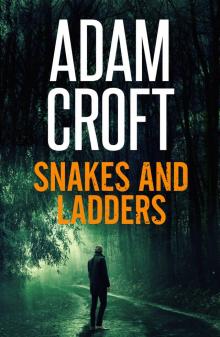 Snakes and Ladders
Snakes and Ladders With A Vengeance
With A Vengeance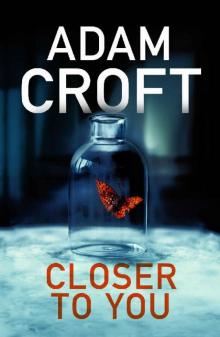 Closer to You
Closer to You In Cold Blood
In Cold Blood Tell Me I'm Wrong
Tell Me I'm Wrong![[Knight and Culverhouse 09] - In Plain Sight Read online](http://i1.bookreadfree.com/i/03/16/knight_and_culverhouse_09_-_in_plain_sight_preview.jpg) [Knight and Culverhouse 09] - In Plain Sight
[Knight and Culverhouse 09] - In Plain Sight Dead & Buried
Dead & Buried Too Close For Comfort
Too Close For Comfort What Lies Beneath (Rutland crime series Book 1)
What Lies Beneath (Rutland crime series Book 1)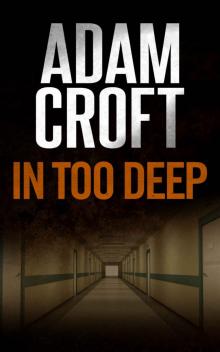 In Too Deep (Knight & Culverhouse Book 5)
In Too Deep (Knight & Culverhouse Book 5) Gone
Gone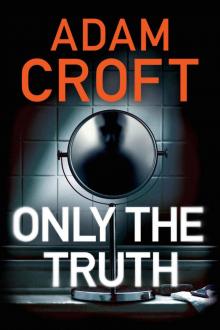 Only the Truth
Only the Truth Kempston Hardwick Mysteries — Box Set, Books 1-3
Kempston Hardwick Mysteries — Box Set, Books 1-3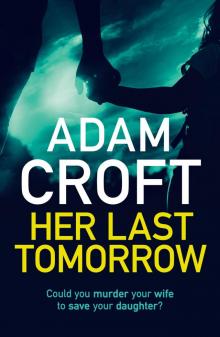 Her Last Tomorrow
Her Last Tomorrow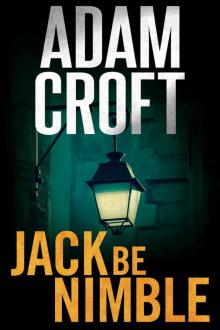 Jack Be Nimble (Knight & Culverhouse Book 3)
Jack Be Nimble (Knight & Culverhouse Book 3)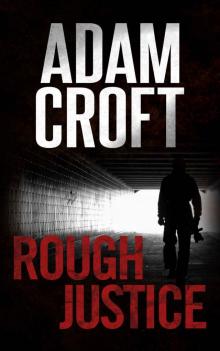 Rough Justice (Knight & Culverhouse Book 4)
Rough Justice (Knight & Culverhouse Book 4)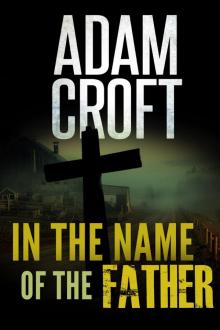 In the Name of the Father
In the Name of the Father In Her Image
In Her Image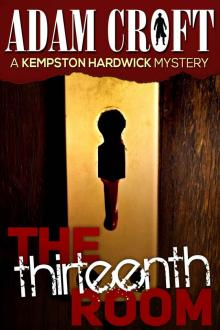 The Thirteenth Room (Kempston Hardwick Mysteries Book 4)
The Thirteenth Room (Kempston Hardwick Mysteries Book 4)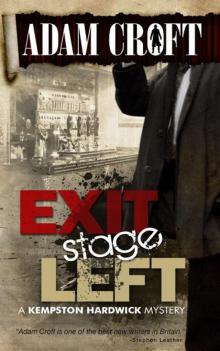 Exit Stage Left (Kempston Hardwick Mysteries Book 1)
Exit Stage Left (Kempston Hardwick Mysteries Book 1)